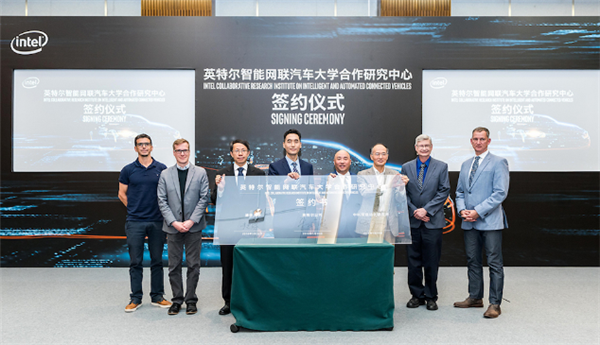Intel, Tsinghua University tie up on intelligent vehicle research

Shanghai (ZXZC)- Intel announced on May 30 the establishment of Intel Collaborative Research Institute on Intelligent and Automated Connected Vehicles (ICRI-IACV) in Beijing to speed up the application of autonomous driving technologies, with aid of Chinese universities and research institutions.
Meanwhile, the world-leading computer processor and technology solution provider inked cooperation agreement with Tsinghua University and Institute of Automation, Chinese Academy of Sciences to jointly research on autonomous vehicle-related subjects. Under the agreement, all participants will conduct joint researches on innovative IoV (Internet of Vehicles) application and parallel driving for intelligent vehicles.
Reportedly, the ICRI-IACV focuses on the safety of autonomous vehicles as well as the human-machine interface of autonomous vehicles and the challenges brought by the new supporting laws and regulations. In addition, the newly-established institute also pays attention to open datasets and relevant benchmark tests, the researches based on C-V2X, mobile edge computing, smart transportation and smart infrastructure, as well as the research on advanced algorithm on the basis of new hardware devices and architecture, like Intel’s 3D Xpoint.
The ICRI-IACV was initiated by the Intel Collaborative Research Institute (ICRI), which has built a number of research branches in the U.S., China, Europe, etc, working on various areas, such as visual computing and mobility networking communication.
With the extensive application of emerging technologies such as AI, communication, big data and cloud computing in the automobile industry, intelligent-connected vehicle (ICV) have become the strategic trend that China's automobile industry heads to. In October 2017, China’s National Development and Reform Commission drafted the Innovation Development Strategy of Intelligent Vehicles, saying that China wishes to basically complete the system of intelligent vehicle technology innovation, industrial ecosystem, road network facilities, laws and regulations, product supervision as well as cybersecurity by 2020.

